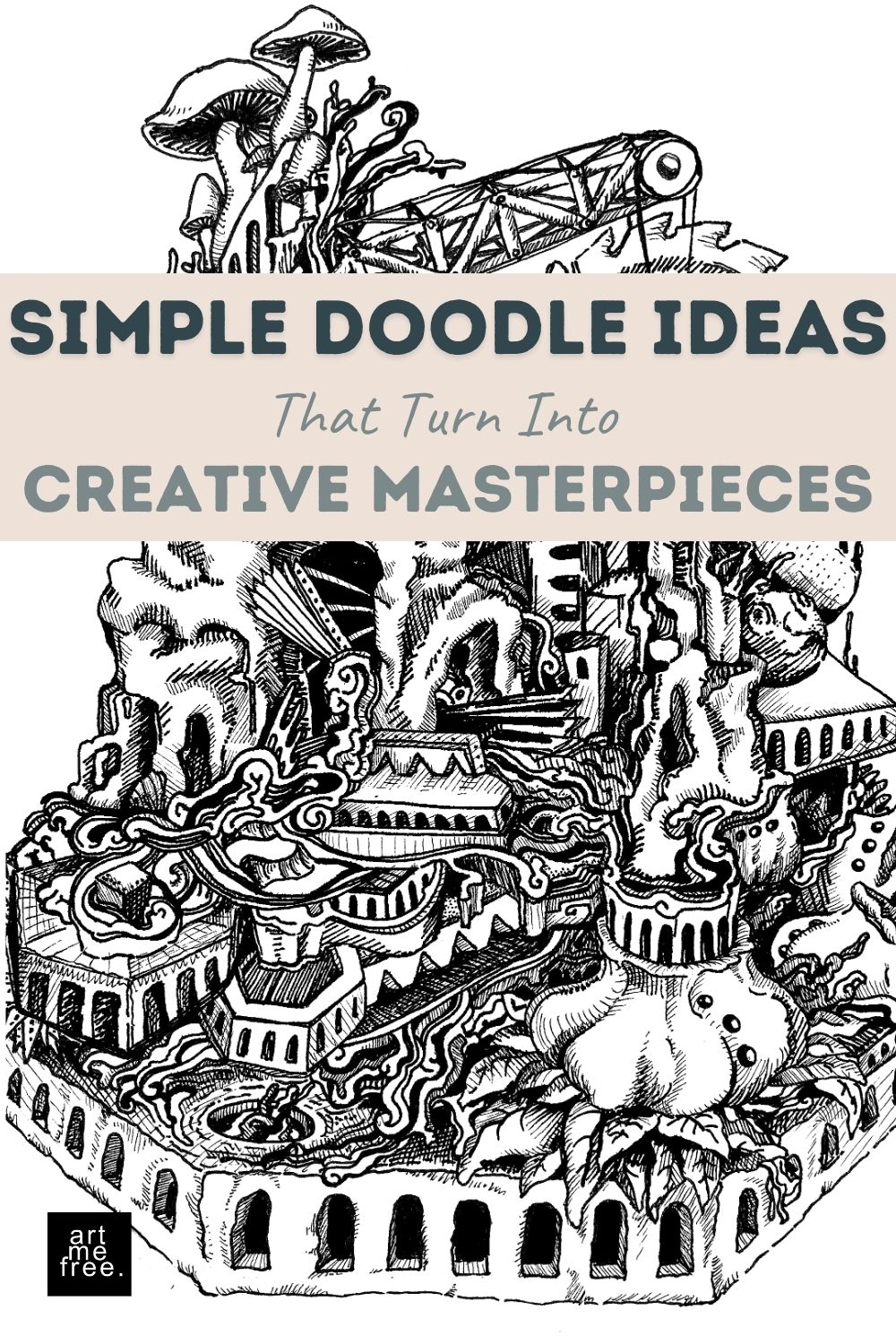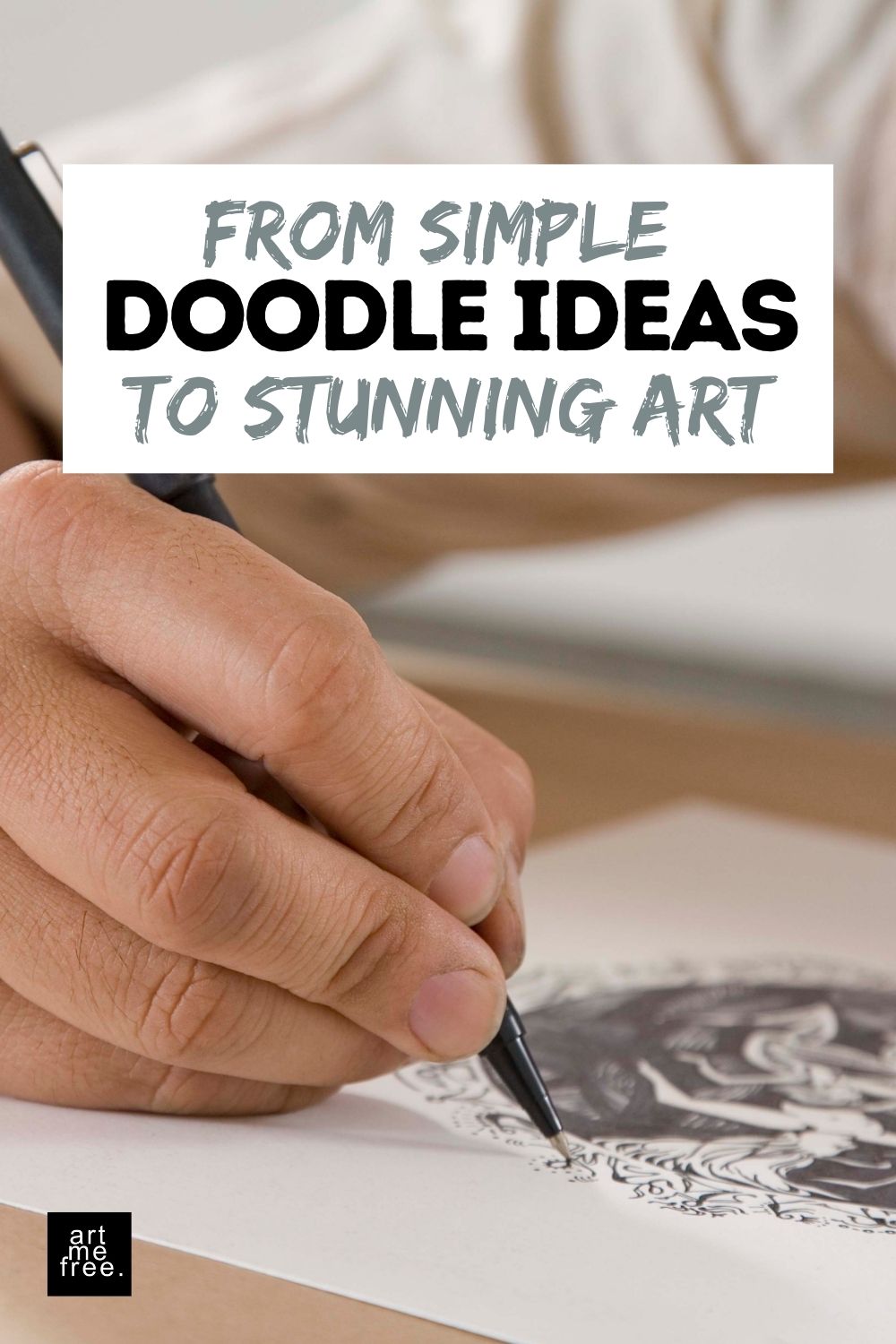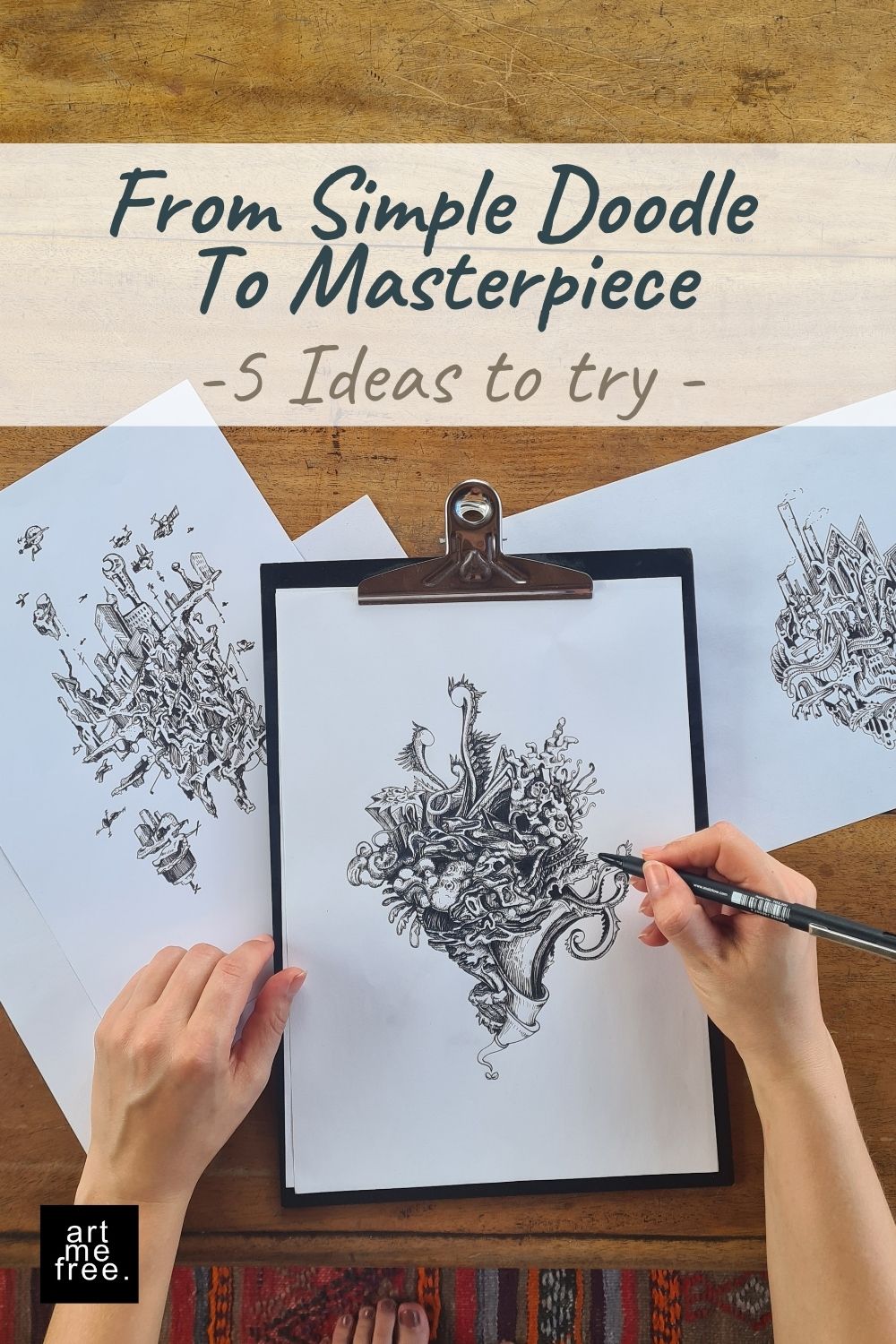
Start by drawing a single small shape in the center of the page. It could be a blob, a gear, a triangle—anything. Then build around it by adding more shapes, lines, and patterns in all directions.
What to try:
Use dots, circles, and spirals to expand outward
Repeat one type of shape in different sizes
Add organic lines connecting elements
Let the cluster grow until it fills a full section of the page
This technique encourages free association. Before long, the piece evolves on its own—turning your original doodle into something rich and layered.
Create a grid, then draw different geometric shapes or patterns inside each square. Start simple, then let each piece develop slightly more detail. Add a shaded corner here, a dotted texture there.
Tips:
Work with triangles, squares, hexagons, or abstract shapes
Use lines and dots to create visual contrast
Repeat a motif with small variations
Leave some boxes blank for breathing space
These pages often take on a beautiful architectural or mosaic quality, like tiny windows into another world.

Start with a single squiggly line. Then let your imagination turn it into something alive—a creature, a plant, or a hybrid fantasy character. This method invites play and removes perfection from the process.
What you can do:
Use curves as spines or tails
Add eyes, legs, and little accessories
Turn accidental marks into features
Combine machine-like and organic elements
This is a great exercise to break free from expectations. It’s spontaneous and fun—and often leads to wildly creative outcomes.
Choose a basic shape—like a circle or square—and fill it completely with a pattern, structure, or doodle narrative. It’s one of the simplest ways to create a contained masterpiece.
Ideas to fill your shape:
Mechanical parts
Tiny abstract faces or creatures
Botanical textures like leaves, vines, or pebbles
Flowing patterns that shift in density
The restriction of a boundary can push your creativity further than a blank page.

One of the most rewarding things about doodling is that you can always return to a page and add more. Try starting a page with just a few marks, then revisit it over several days.
Approach:
Start with a loose sketch or mark in a corner
Add a few elements each time you revisit
Let the drawing grow in one direction—or spread across the page
Notice how themes or patterns begin to emerge
This slow-build method transforms something simple into something thoughtful and full of character.
With the right mindset, even the simplest doodle can evolve into something beautiful. These ideas are all about starting small, staying playful, and trusting the creative process. The key is to enjoy each step and let the piece grow on its own terms.
Save this post to your Pinterest board if you want to revisit it later! And don’t forget to stop by the artmefree gallery or explore the artmefree shop to see how spontaneous doodling turns into finished art.



To provide you with an optimal experience, we use technologies such as cookies to store and/or access device information. If you consent to these technologies, we may process data such as browsing behavior or unique IDs on this website. If you do not give or withdraw your consent, certain features and functions may be impaired.